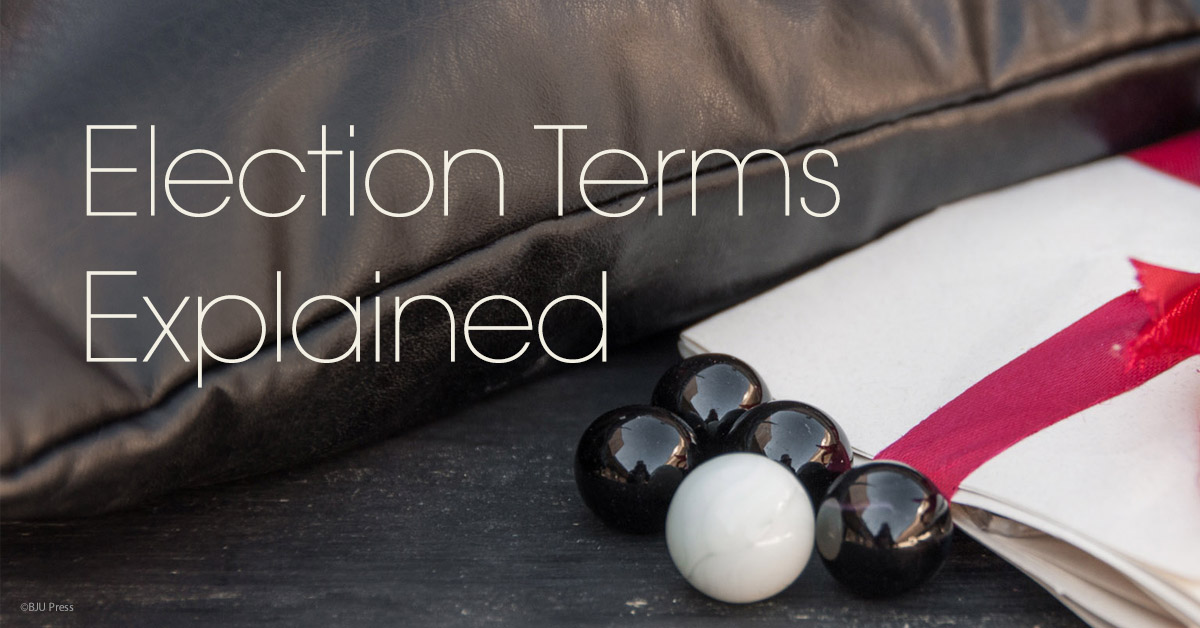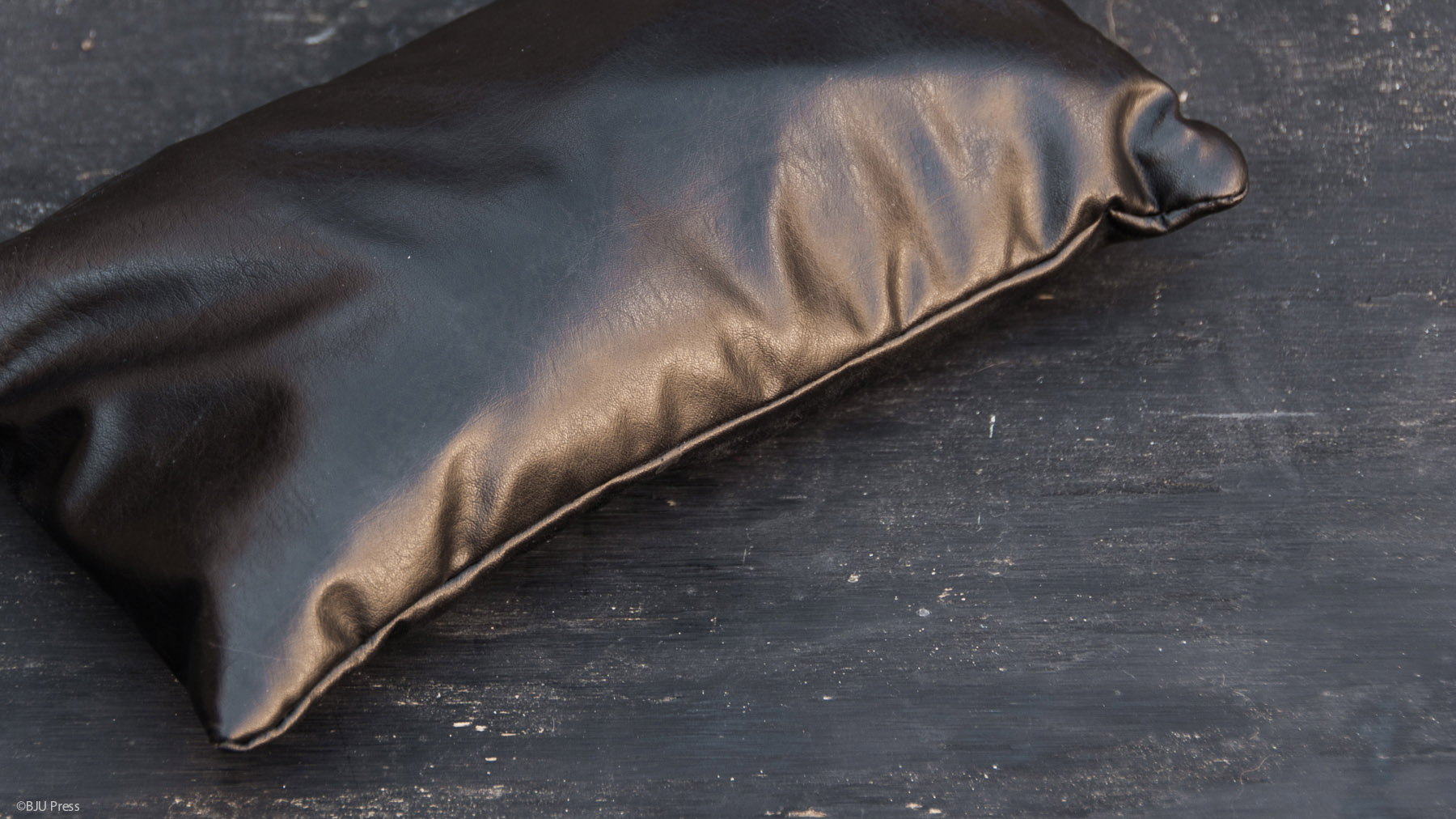Election Day is just around the corner, and if you’re like me, you’ve probably wondered about some of the language the candidates have been using. To find out more, I looked though the BJU Press vocabulary curriculum. I came back with some rather interesting information.

Red Tape
Candidates often talk about “cutting the red tape” that slows down anything the government gets involved in. But have you ever wondered where the phrase “red tape” came from?
As early as the mid 1800s, Charles Dickens and Thomas Carlyle wrote about the annoying red tape of their day. In English government offices it was customary to use strips of red fabric for tying legal papers in bundles. Red tape became a symbol for needless forms and regulations issued by the government. Government business is now largely computerized, but red tape is still with us.

Casting a Ballot
It’s almost time to cast our ballots, but we aren’t really going to cast anything. We’re going to write our vote on paper or press a button on a machine. So why do we call it casting a ballot?
Originally voters did literally cast their ballots. To cast means “to throw,” and the ballots that were tossed into a ballot box were pebbles or small balls. In Italian, ballotta means “little ball.” A black ball indicated a negative vote. Today, to blackball a person means “to vote against or to exclude a person from a social group.” Paper ballots and voting machines might have replaced the pebbles, but we still speak of casting ballots at election time.

Budget
We hear a lot of talk about “balancing the budget,” but where exactly did the term budget come from?
In Old French the word bougette referred to a little leather bag. A merchant could tell how much money he had by opening his bougette. In Middle English bouget meant “a small sack for money.” It would be wise for those who are trying to balance a budget to follow the example of those medieval merchants by looking in the bag and spending only the money they actually have.

All these examples and more can be found in the BJU Press language arts curriculum, which you can preview on bjupresshomeschool.com.